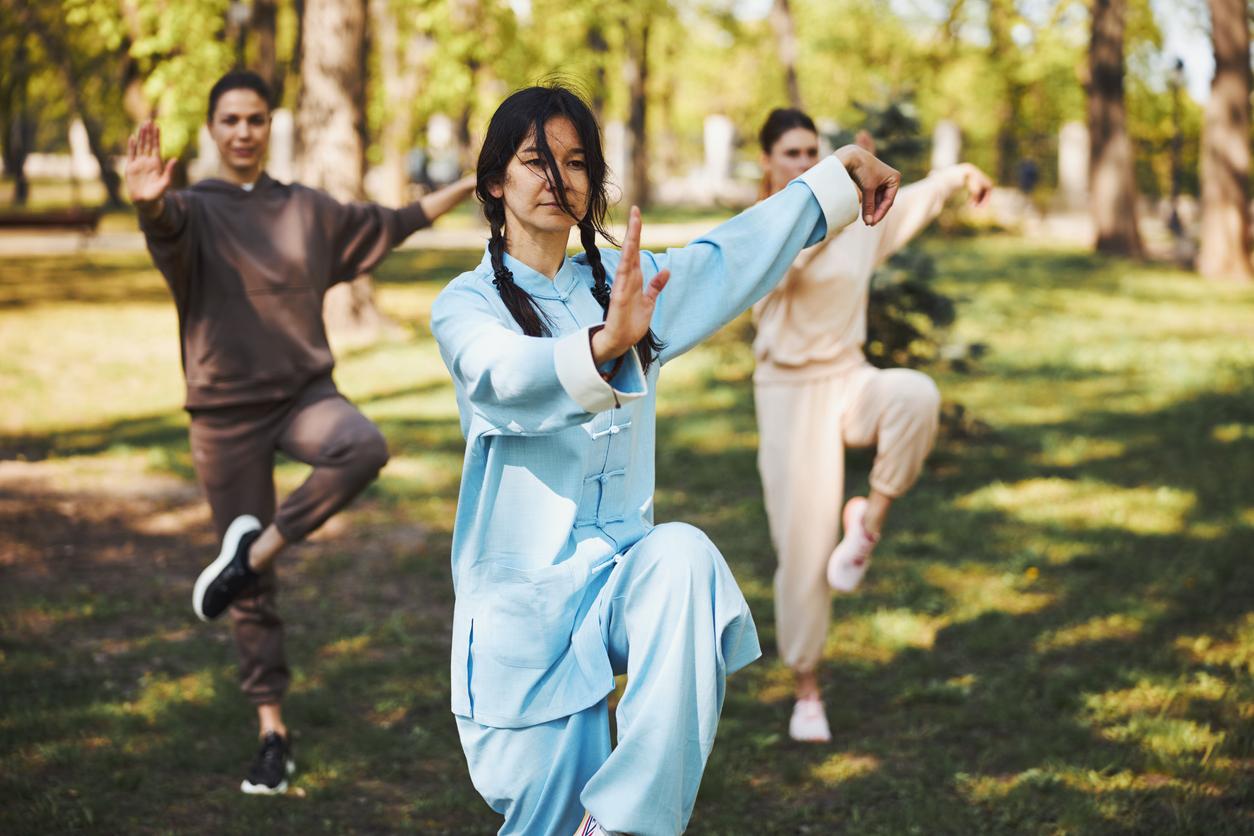The practice of tai chi is associated with slower progression of this neurodegenerative disease.

- Parkinson’s patients see their disease progress more slowly thanks to tai chi.
- The practice of this discipline is also linked to lower doses of the medications required over time.
- This relaxation method and martial art has also continually improved patients’ sleep and quality of life.
It generally affects older people, but can also affect younger patients. Parkinson’s disease, which is characterized by the destruction of certain neurons in the brain, causes motor problems, mental health problems, sleep problems and pain. In patients, the most common symptoms are severe fatigue, slowness of movements, tremors at rest, rigidity of the limbs, irritability, lowering of the voice or even increasingly difficult writing.
To date, there is no treatment that can cure this neurodegenerative pathology. However, therapies and medications can relieve the symptoms. This is for example the case of tai chi, according to several researches. However, none have reported the long-term effects of this ancestral Asian discipline, which is both a relaxation method and a martial art. Thus, researchers from the medical school of Shanghai Jiao Tong University (China) conducted a study to find out if the practice of tai chi could promote continuous improvement in adults suffering from Parkinson’s disease.
Parkinson’s: 147 patients did tai chi twice a week for one hour
For the purposes of their work, they followed Parkinson’s patients for more than five years, from January 2016 to June 2021. A group of 147 patients did tai chi twice a week for an hour, helped by classes to improve their technique. The other group of 187 patients continued to follow their usual care, but did not practice this discipline. Disease severity was measured in all participants at the start of the surveillance period, and disease progression, including increased need for medication, was subsequently assessed in November 2019, October 2020 and June 2021. .
The extent of movement and other symptoms, such as autonomic nervous system function (including bowel movements, urinary and cardiovascular problems), mood, sleep quality, and prevalence of complications, such as dyskinesia (involuntary movements), dystonia (abnormal muscle tone), decreased responsiveness to drug treatment over time, mild cognitive impairment, hallucinations, restless legs syndrome were also monitored.

Tai chi may reduce the symptoms and complications of Parkinson’s disease
According to the results, published in the journal Journal of Neurology Neurosurgery & Psychiatrythe progression of Parkinson’s disease was slower in people who did tai chi, based on assessments of overall symptoms, movement and balance. “The annual increase in daily levodopa dose was significantly lower in the tai chi group.” The authors also found that the cognitive functions of patients who practiced this Chinese discipline deteriorated more slowly and that their sleep and quality of life continually improved.
Regarding the prevalence of complications, it was lower in the tai chi group: 1.4% versus 7.5% for dyskinesia, 0% versus 1.6% for dystonia, 0% versus little more than 2% for hallucinations, 3% versus 10% for mild cognitive impairment, 7% versus 15.5% for restless legs syndrome. Falls, dizziness and back pain were the three side effects reported by participants, but they were all significantly lower in the tai chi group. Although 23 people suffered a fracture, these all occurred during daily life and were fewer among the patients doing tai chi.
“Our study showed that tai chi maintains its long-term beneficial effect on Parkinson’s disease, indicating potential disease-modifying effects on motor and non-motor symptoms, particularly gait, balance and cognition . (…) This could extend the disability-free period, leading to better quality of life, less burden on caregivers and less consumption of medications.”the scientists concluded in a statement.














